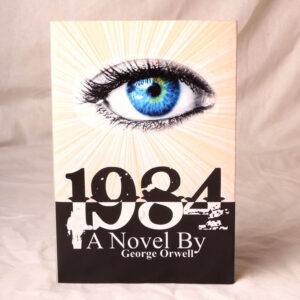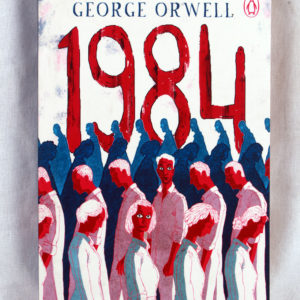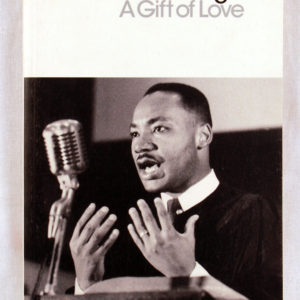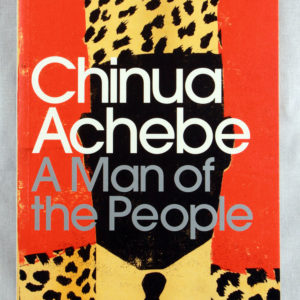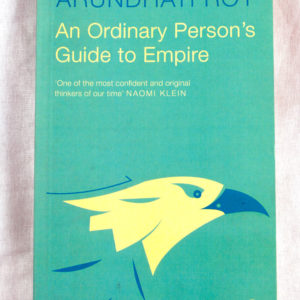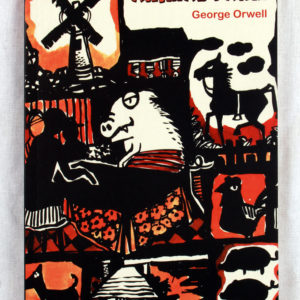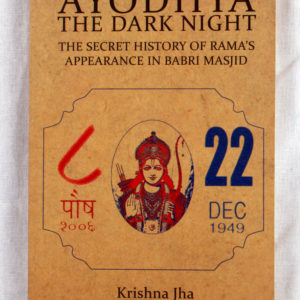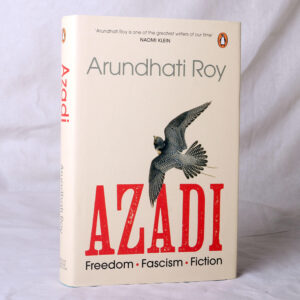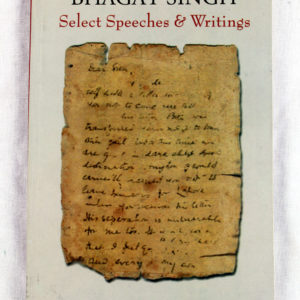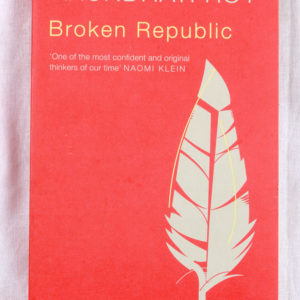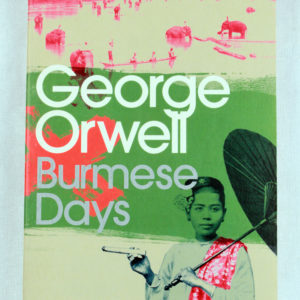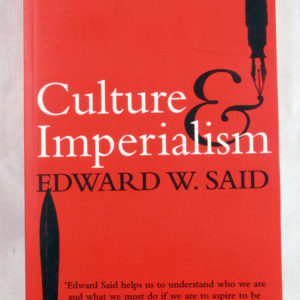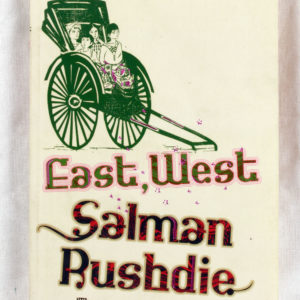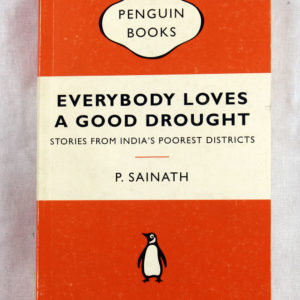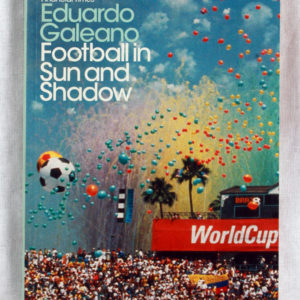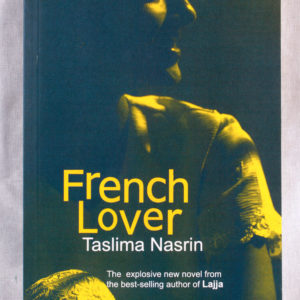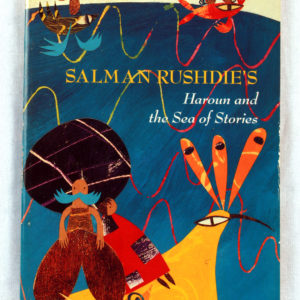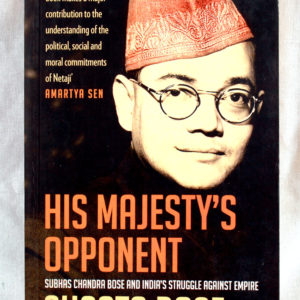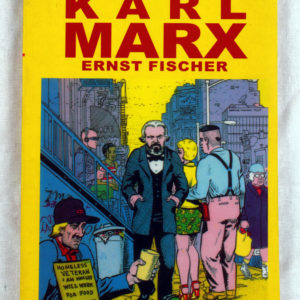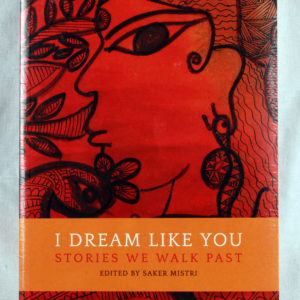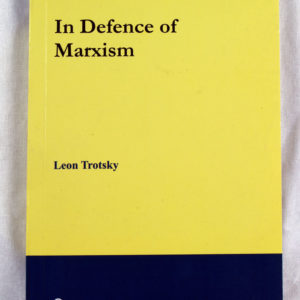Filter
Nineteen Eighty-Four is a classic literary novel in the genres of political fiction and dystopian science fiction. Many of its terms and concepts, such as Big Brother, doublethink, thoughtcrime, Newspeak, Room 101, telescreen, 2 + 2 = 5, and memory hole, have entered into common usage since its publication in 1949. Nineteen Eighty-Four also popularised the adjective Orwellian, which connotes things such as official deception, secret surveillance, brazenly misleading terminology, and manipulation of recorded history by a totalitarian or authoritarian state, as described by the author. In 2005, the novel was chosen by Time magazine as one of the 100 best English-language novels from 1923 to 2005. It was awarded a place on both lists of the Modern Library’s 100 Best Novels, reaching #13 on the editors’ list and #6 on the readers’ list. In 2003, the novel was listed at #8 on The Big Read survey done by the BBC.
The classic collection of sixteen sermons preached and compiled by Dr. King
As Dr. King prepared for the Birmingham campaign in early 1963, he drafted the final sermons for Strength to Love, a volume of his most best-known homilies. King had begun working on the sermons during a fortnight in jail in July 1962. While behind bars, he spent uninterrupted time preparing the drafts for works such as “Loving Your Enemies” and “Shattered Dreams,” and he continued to edit the volume after his release. A Gift of Love includes these classic sermons, along with two new preachings. Collectively they present King’s fusion of Christian teachings and social consciousness, and promote his prescient vision of love as a social and political force for change.
A Man of the People (1966) is a novel by Nigerian writer Chinua Achebe. Written as a satirical piece, A Man of the People follows a story told by Odili, a young and educated narrator, on his conflict with Chief Nanga, his former teacher who enters a career in politics in an unnamed fictional 20th century African country. Odili represents the changing younger generation; Nanga represents the traditional West African customs, inspired by that of Achebe’s native Nigeria. The book ends with a military coup, similar to the real-life coups of Johnson Aguiyi-Ironsi, Chukwuma Kaduna Nzeogwu and Yakubu Gowon.
When India detonated a thermonuclear device in May 1998, Arundhati Roy wrote The End of Imagination . Since then she has written with clarity, precision and insight about a range of subjects of the utmost importance. This second volume of her collected writing brings together fourteen essays written between June 2002 and November 2004. In these essays she draws the thread of empire through seemingly unconnected arenas, uncovering the links between America s War on Terror, the growing threat of corporate power, the response of nation states to resistance movements, the role of NGOs, caste and communal politics in India, and the perverse machinery of an increasingly corporatized mass media. Meticulously researched and carefully argued, The Ordinary Person s Guide to Empire is a necessary work for our times.
What happens when ill-treated farm animals gang up to throw out their lazy, corrupt and power-drunk rulers? Animal Farm is born.
As humans get ousted from Manor Farm and animals take control, their utopian fantasy of running a farm on the basis of equality soon begins to crumble before their eyes. The rebellion of the animals, led by the two pigs, Napoleon and Snowball, gives way to corrupt practices that lead to unthinkable consequences.
A resounding fable on totalitarianism and power-gone-corrupt, Animal Farm is an allegorical novella that took the publishing world by storm when it was first published and hasn’t stopped doing so ever since. The ultimate satire on fascism, Animal Farm finds relevance even in present-day world. A must-read!
Georgy Valentinovich Plekhanov, 1857–1918, a Russian revolutionary and founder of Marxism in Russia and known as the “Father of Russian Marxism.” His best works in the fields of history, philosophy, aesthetics, social and politics, especially the philosophy of historical materialism, were contributions that very valuable for the development of scientific thought and progressive culture.
Publisher: Aakar Books (1869)
As the trespassers walked towards the mosque, the muezzin […] jumped out of the darkness. Before the adversaries could discover his presence, he dashed straight towards Abhiram Das, the vairagi who was holding the idol in his hands and leading the group of intruders. […] The sadhu quickly freed himself and, together with his friends, retaliated fiercely. Heavy blows began raining from all directions. Soon, the muezzin realized that he was no match for the men and that he alone would not be able to stop them. 22 December 1949: A conspiracy that began with the assassination of Mahatma Gandhi culminated in the execution of the Ayodhya strategy. Late that night, a little-known sadhu, Abhiram Das, and his followers entered the Babri Masjid and planted an idol of Rama inside it. While it is known that the Hindu Mahasabha had a role in placing the idol in the mosque, the larger plot and the chain of events that led to that act have never been subject to rigorous scrutiny. Through intrepid research and investigation, Krishna Jha and Dhirendra K. Jha bring together the disparate threads of the buried narrative for the first time. Through a series of first-hand interviews with eyewitnesses and the unearthing of archival material, the authors take us behind the scenes to examine the motivations and workings of the Mahasabha members who pulled the strings. They also examine the liaison between Mahasabhaites and Hindu traditionalists in the Congress – an association that Jawaharlal Nehru sought to break in his cautious battle with Sardar Vallabhbhai Patel and the right-wing forces. Ayodhya: The Dark Night uncovers, in vivid detail, what really transpired on the fateful night that was to leave a permanent scar on the Indian polity.
The chant of ‘Azadi!’ – Urdu for ‘Freedom!’ – is the slogan of the freedom struggle in Kashmir against what Kashmiris see as the Indian Occupation. Ironically, it also became the chant of millions on the streets of India against the project of Hindu Nationalism.
2009–2012 War has spread from India’s borders to the forests in the very heart of the country. Here are four essays by Arundhati Roy including the heatedly debated ‘Walking with the Comrades’ that combines a clear-eyed, analytical overview with extraordinary reportage from the ground of the Maoist guerrilla zone and her most recent essay, ‘Capitalism: A Ghost Story’. Broken Republic examines the nature of progress and development in the emerging global superpower, and asks some fundamental questions about the real meaning of civilization itself.
Burmese Days is a novel by English writer George Orwell. It was first published in the United Kingdom in 1934. It is a tale from the waning days of British colonialism, when Burma was ruled from Delhi as a part of British India – “a portrait of the dark side of the British Raj.” At its centre is John Flory, “the lone and lacking individual trapped within a bigger system that is undermining the better side of human nature.” Orwell’s first novel, it describes “corruption and imperial bigotry” in a society where, “after all, natives were natives—interesting, no doubt, but finally…an inferior people”.
Culture and Imperialism is a 1993 collection of essays by Edward Said, in which the author attempts to trace the connection between imperialism and culture in the 18th, 19th, and 20th centuries. It followed his highly influential Orientalism, published in 1978.
Said conceived of Culture and Imperialism as an attempt to “expand the argument” of Orientalism “to describe a more general pattern of relationships between the modern metropolitan west and its overseas territories.
East, West is a 1994 anthology of short stories by Salman Rushdie. The book is divided into three main sections, entitled “East”, “West”, and “East, West”, each section containing stories from their respective geographical areas (in the “East, West” section both worlds are influenced by each other). Though Rushdie himself never divulged the exact inspirations for his stories in East, West, it is commonly thought that the central themes of each of his stories are drawn from his personal experiences as an immigrant in England during the time of the fatwas issued against his life. Rushdie weaves in many pop cultural references into his stories, just as television and Western media such as MTV and movies like Rambo have become popular throughout the world and on the Indian subcontinent. The influence and travels of Indians and Indian culture is also shown in the West.
The poor in India are, too often, reduced to statistics. In the dry language of development reports and economic projections, the true misery of the 312 million who live below the poverty line, or the 26 million displaced by various projects, or the 13 million who suffer from tuberculosis gets overlooked. In this thoroughly researched study of the poorest of the poor, we get to see how they manage, what sustains them, and the efforts, often ludicrous, to do something for them. The people who figure in this book typify the lives and aspirations of a large section of Indian society, and their stories present us with the true face of development.
Fanshen: A Documentary of Revolution in a Chinese Village is a 1966 book by William H. Hinton that describes the land-reform campaign during the Chinese Civil War conducted from 1945 to 1948 by the Chinese Communist Party in “Long Bow Village” (the name used in the book for the village of Zhangzhuangcun in Shanxi province). Hinton lived in the village in spring and summer of 1948 and witnessed scenes described in the book and recreates earlier events based on local records and interviews with participants. He explains party strategy to present the campaign’s successes in building a revolutionary consciousness and a power-base among the poor peasants, but also its errors and excesses, especially the violence toward rich peasants and landlords. Fanshen has been compared to Edgar Snow’s Red Star Over China and characterized as “perhaps the book that most changed American cold war perceptions of the Chinese Revolution.”
Originally published: 1966
Author: William H. Hinton
This new edition of Eduardo Galeano’s riveting commentary on the history and politics of soccer includes newly written material on the 2002 World Cup, which one quarter of humanity watched. Discussing everything from the leveling of the Twin Towers to the death of the sole survivor of that extraordinary match between British and German soldiers in 1915, one of South America’s greatest commentators issues forth on robotic soccer in Japan, the mass-production of the game as a sign of the decline of civilization, the amazing success of Senegal and Turkey, and how Nike beat Adidas.
French Lover is the story of Nilanjana, a young Bengali woman from Kolkata who moves to Paris after getting married to Kishanlal, a restaurant owner. Kishanlal’s luxurious apartment seems to be a gilded cage for Nilanjana, and she feels stifled within its friendless confines. Her marriage, where she functions as little more than a housekeeper and sex object, is far from fulfilling and Nilanjana desperately looks for a way out of the boredom and depression that threaten to engulf her. It is at this point that she meets Benoir Dupont, a blond, blue-eyed handsome Frenchman, and is swept off her feet. Benoir introduces Nilanjana to the streets, cafes and art galleries of Paris. In her passionate, sexually liberating relationship with Benoir, she finally begins to have an inkling of her own desires. The relationship ends when Nilanjana realises that Benoir’s first priority is himself and not the woman he loves, and that her need for him has ended. But her road to self-discovery has only just begun. Bold in concept and powerful in execution, French Lover is a fascinating glimpse into the workings of a woman’s mind as she struggles to come to terms with her identity in a hostile world.
Fury, published in 2001, is the seventh novel by postcolonial author Salman Rushdie. Rushdie depicts contemporary New York City as the epicenter of globalization and all of its tragic flaws.
This epic of a life larger than its legend is both intimate, based on family archives, and global in significance. “His Majesty s Opponent” establishes Bose among the giants of Indian and world history.
A brief, clear, and faithful exposition of Marx’s major premises, with particular attention to historical context.
Author : Ernst Fischer
This book is correctly regarded as one of Trotsky’s finest classics. It is a product of a sharp polemic within the American trotskyist movement during the period 1939-40. This was a dispute which touched on the very fundamentals of Marxism. It was for this reason that Trotsky himself participated in this struggle in the form of a series of articles and letters that are brought together in this volume.
Publisher : Aakar Publications

